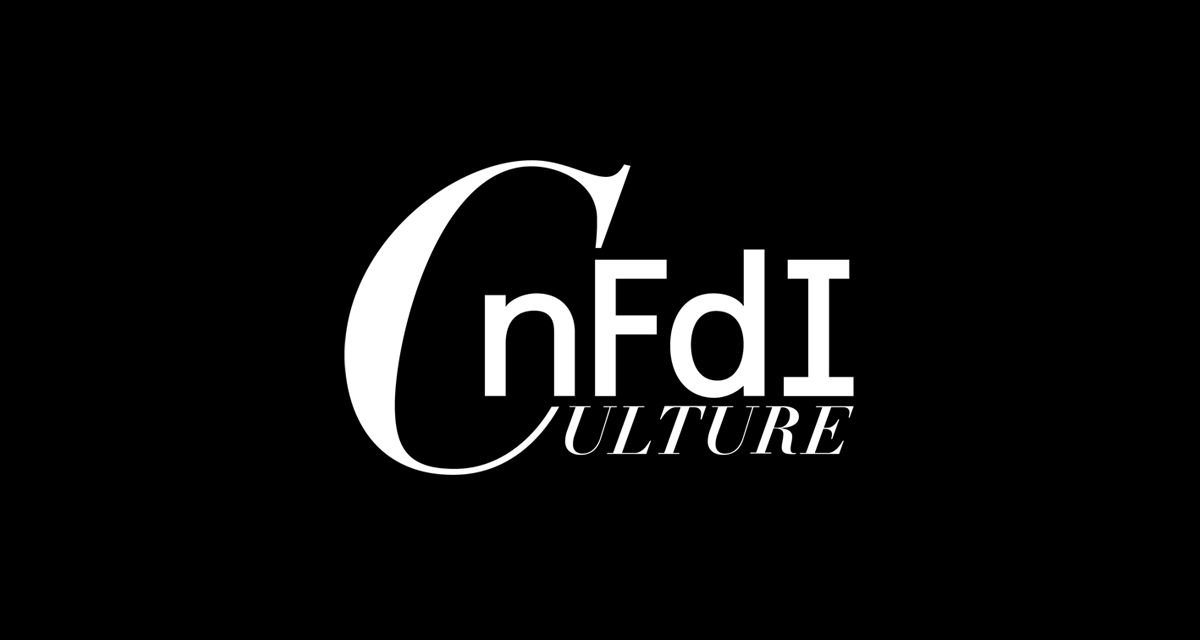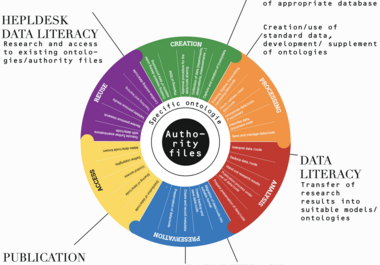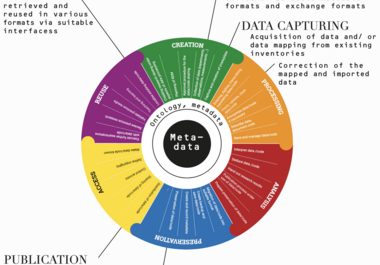NFDI4Culture Use Case
Challenges of long-term archiving of social media platforms: Lecture and discussion series "Show & Tell – Social Media Data in Research Practice"
By Christoph Eggersglüß
Keywords

Abstract metal structure
"Low-angle photography of a metal structure" CC0 Creator: Alina Grubnyak
Social media data consists not only of messages and threads, images or videos, but also of links and contexts. There are metadata, time-specific structures and dynamic relationships. Unstable and constantly adapted interfaces and scripts of the platforms also represent a major challenge for research and archiving, especially in respect to sustainable indexing and long-term security. Platforms and researchers are, so to speak, in a constant 'arms race' of technical means in order to get access to and store this data. Last but not least, research has legal and ethical limits.
The National Research Data Infrastructure (NFDI) brings together a large number of communities that address such problems. Since the beginning of 2022, data communities, researchers and infrastructure institutions have established a forum for such concerns in the lecture and discussion series Show & Tell - Social Media Data in Research Practice, organised by NFDI4Culture, together with BERD@NFDI, KonsortSWD and Text+.
In Zoom sessions participants learn about best practices and tools in the field of social media research. Researchers, libraries and repositories have already successfully contributed their perspectives on Twitter, Reddit, Facebook and the like to the discussion. Images and other forms of multimodal data (stories) were explained with in-depth reviews of Instagram and TikTok.
The focus of the series is on pragmatic solutions and technical options such as interfaces, repositories, metadata standards and interoperability. Ethical and legal challenges in the area of personal rights and copyrights in the sustainable, secure and critical handling of this data are also underlined. The series pays particular attention to code and data literacy as well as the FAIR & CARE principles for sustainable archiving and indexing of data sets. Eventually, it invites participants to develop interdisciplinary research approaches and tool-specific teaching methods.
"The series encourages reflection of ethical and methodological questions, directly linking to specific analytical practices and ways of handling data."
"The series presented relevant tools in an application-oriented manner. Particularly, introductions to practical handling of current issues were helpful."

Prof. Dr. Sven Stollfuß | Gesellschaft für Medienwissenschaft e.V.
Twitter and its business-oriented demise with the emergence of X, which the series followed in various stages, is a particular example. It was not just about collecting, indexing and archiving the actual postings, but above all about recognising partially automated services (e.g. social bots).
For their very different projects and problems, the communities were able to draw on NFDI4Culture's expertise in the areas of long-term archiving, standards, metadata, tools, visualisation and data literacy. These include, for example, the time-critical recording and long-term archiving of text and image data and the systematic securing of high-frequency, multimodal content on distributed platforms and apps. This was accompanied by the development of corresponding tools and methods. In this way, initiatives for development and provision could be identified and complex questions about collecting, linking and analysing data from social media among the participating consortia, their communities and beyond could be discussed.





